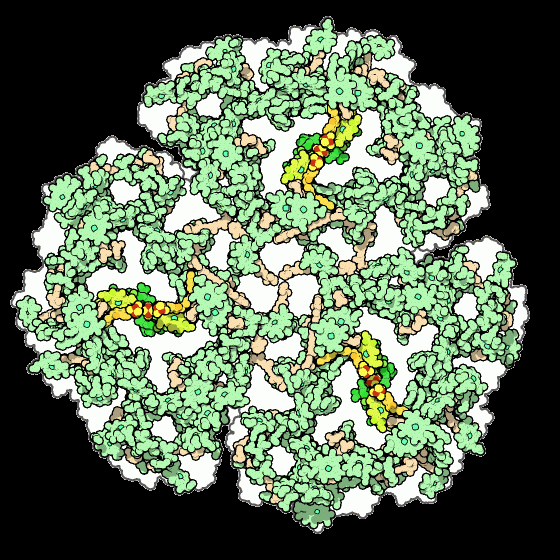I just lost my job as a civil engineer and I’ve been trying to find resources, forums, staffing agencies, etc to help land me a job and all of what’s out there online talks about faang, leetcode, programming bullshit, etc. Call yourselves Computer scientists, programmers, hogs, i don’t care, please for the love just stop dominating all the ‘engineering’ discourse.
Computer nerds wanna be engineers so bad, they should have the same licensing and liability requirements
otherwise they're just stealing valor
They do, just only for important shit like airplanes and nuclear reactors.
Webshit doesn't need liability and licensing.
I can build a doghouse without liability and licensing, it don't make me an architect
Computer nerds could stop using the word engineer but use the title "Eng." like American lawyers use "Esq." as a vanity title to compete with the meaningful titles that doctors use: Dr. and MD. In a very unlawyerly-like fashion - lawyers gave "Esq." no legal meaning.
Wow, I didn't realize engineers got this upset about it. Definitely using the term Software Engineer instead of Programmer from now on
I was happy to call myself a “n00b h4x0r” but HR insisted I stick with “junior software developer”
Wouldn’t searching up “civil engineering” filter the software stuff out?
:cereal1: If you don’t work on engines you aren’t an engineer
:cereal2: “I work on a game engine”
Just add the word "civil". Would you complain about chemical engineers if all the results you were getting were that? "Engineering" is way too broad of a category to not specify which specific kind you're looking for.
I believe there is such a thing as software engineering, but it describes a minuscule fraction of the amount of work which takes place in the field.
I mean, true, a lot of people call software design "engineering," but as someone whose job title is literally "software engineer" (who has, in fact, designed software from the ground up) I have to point out that it's really not engineering in the traditional sense. Real engineers take the FE and the PE, and they stamp their designs (meaning that if those designs result in catastrophic failure that leads to injury or death, that engineer is on the hook for that). None of that applies to me. So OP's point is totally valid.
I agree. What I'm referring to is the kind of stuff that goes into flight control systems, nuclear reactors, industrial robotics, etc. The kind of software that will get people killed if it malfunctions. This kind of stuff is built with a completely different methodology than consumer / enterprise applications. For instance, in avionics they design the entire system so it does absolutely no dynamic memory allocation whatsoever.
That's fair, although I suspect most of the people programming systems like that have degrees in real engineering, not just computer science.
I had a colleague who had a software engineering degree, but at his school it was actually in the school of engineering and he had to take all of the same core physics classes as the real engineers.
Seems like a waste of effort since we were doing the same job, him with a MS in Engineering and me with a BS in CS.
I don't think software engineering has an established PE yet. I think those systems fall under ECE and most universities prepare the software engineers for the ECE PE exams. Might be wrong on that though.
Most real engineers don't have a PE either, lol. I know engineers nearing retirement who never got their PE.
I mean, yeah, but somebody on the job has to have taken it, right? That was my understanding.
Sure, but also you wouldn't say the overwhelming majority of engineering work isn't real engineering work because it was done by people who didn't need to get the PE designation.
A lot of shops have one engineer with a stamp and dozens of draftsmen that are just paid draftsman wages for permit and design drawings.
Where I'm at, the resident PE literally just puts a stamp on our work.
None of that applies to me. So OP’s point is totally valid.
I know we probably couldn't have developed the web as it is today as quickly without allowing anybody who can write code to be a "software engineer", but imo that sort of protection should apply to the title and we should demand more of our software developers
but it is engineering rather than science as it is more concerned with achieving practical effects than through testing developing a theory of reality
it's just a popular school of engineering and many types of engineer find coding useful
Eh, I don't get this post...
Long time ago, at our university, you had to go through 2 years of electrical engineering, semiconductors, even quantum mechanics of materials first. Then you could specialise in a field, from industrial electronics and power plant engineering, to software engineering. Software engineering meant a lot. From a lot of theory and math (e.g. AI), to going into very low level details of how hardware components work and this is vastly different then the usual programmers who write various "apps" today. It was a true engineering course.
That being said, most of us still ended up doing run-of-the-mill app development, but our "developing" country just didn't offer any other opportunities. In fact, few of them do. E.g. we learned microcode, which I guess you wouldn't actually do, unless you worked for one of the very few CPU manufacturers and very few actually managed to get there.
The world engineer lost all meaning when economic engineering was established
Haha, I feel this to my soul.
"software engineer?" No, you're a programmer. Degree in computer science? Great! Call yourself a computer scientist. Frankly, as an engineer (mechanical engineer with a heat and mass transfer graduate degree) with comp sci undergrad minor. It has always seemed silly to call yourself a software engineer. I mean, I write things using Matlab, OpenFOAM, some pipe flow modelling software, and similar programs. I still call myself a mechanical engineer and I probably write more/better code than all these so-called software engineering who contributed to facebook or something other garbage useless waste of time.
A programmer is significantly closer to "engineer" than "scientist". Scientists do research, engineers make things.
True, it's not just a title. It's also literally a verb. https://www.thefreedictionary.com/engineered
To plan, manage, and bring about by skillful acts or contrivance: engineer a business takeover; engineer social changes by legislation.
A programmer is more like a technician, having hands-on knowledge on how to do something, but not having the theory behind why they are doing what they are doing, and that's o.k.
I will start referring to engineers as "differential equations technicians".
The point of the CS degree is that if you remember what ypu learned, then yes you do have the theory behind what you're doing.
Yeah I think they're trying to make a distinction between a programmer and a software engineer
The thing is that programmers also generally do have a CS degree, and in fact in many places you get a far better understanding of what's going on taking a CS degree than taking a software engineering degree.
A degree from a school of engineering to prepare you to be a software engineering, and that gives you an engineer title in places where the specialization exists, along with all the classes that engineers have to take and so on. Basically what the thread says software engineers should be if they exist. For example: https://www.concordia.ca/academics/undergraduate/software-engineering.html
Overwhelmingly, they teach even less of the relevant theory than a CS theory. Which, by the way, capitalist ghouls love to complain isn't necessary and shouldn't be taught.
Which, by the way, capitalist ghouls love to complain isn’t necessary and shouldn’t be taught
in this way capitalist ghouls are being silly and risk damaging the ability of future workforce's ability to maintain and significantly change codebases
Which, by the way, capitalist ghouls love to complain isn’t necessary and shouldn’t be taught.
There's a lot of dumb CEOs in tech, and a lot of myopia with the "learn to code" people. But luckily the industry has mostly managed to maintain its emphasis on at least a baseline understanding of the underlying theory. Christ, imagine where we'd be if people just gave up on teaching data structures and algorithms, lol.
I am a computer nerd, but I agree. Everybody thinks doctors need training and certification. Even countries that really invest in their medical system don't make it easier to become a doctor, they just create systems that give more people the opportunity (Cuba).
My understanding is that civil engineering, or the other traditional kinda, are the same way. You have professional certifications, standards, and associations. In CS, we have none of that. The only certs are resume boosters sold by big companies. There are no professional organizations with any influence. The only time we have standards is when the entire industry fucks up really badly; see pci security requirements.
I think programming could become real engineering in the future, but it will take decades or a century for the industry to sort itself out first.
I haven't used the words "recording engineer" on my business card or resume since 2009, so, :im-doing-my-part:
Speaking as a software dev, I really wish we had some goddamned standards and industry-level certifications (e.g., IEEE-issued, not vendor-specific bullshit) in this field.
I don't know about that. This probably won't actually improve safety much and also disadvantage people who don't have access to formal schooling. Better to punish people for being negligent.
Someone died because of your shitty software? Jail. Manager made you cut corners? Jail for that guy too. Put the CEO or whoever is in charge in jail out of principle.












